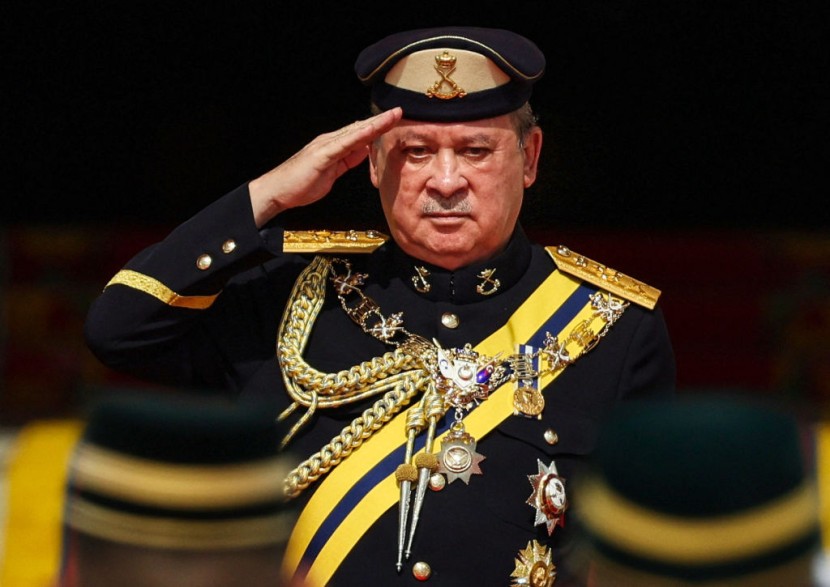Sultan Ibrahim Sultan Iskandar, one of Malaysia's wealthiest individuals, was officially crowned on Wednesday as the nation's 17th king under the country's rotating monarchy system.
The coronation took place at the majestic Istana Negara, Kuala Lumpur as Sultan Ibrahim assumed the role of the Yang di-Pertuan Agong (YDPA), or the king, succeeding his predecessor in this unique constitutional monarchy.
Coronation Ceremony Marks a Symbolic Transition

The coronation ceremony, attended by dignitaries and members of the royal family, marked a symbolic transition in Malaysia's leadership.
Sultan Ibrahim, hailing from the state of Johor, took the oath of office and pledged to fulfill his constitutional duties diligently. The event signifies the rotational nature of the Malaysian monarchy.
He is set to serve a five-year term as per Malaysia's distinctive system. In this arrangement, the nation's nine hereditary rulers rotate, taking turns to assume the role of the Yang Di-Pertuan Agong, also known as He Who is Made Lord, for a five-year term each.
His predecessor, Al-Sultan Abdullah Ri'ayatuddin Al-Mustafa Billah Shah of Pahang, wrapped up his term on January 30th, overseeing a turbulent period characterized by COVID-19 lockdowns and political instability.
As the newly appointed king, the 65-year-old billionaire inherits the responsibility of upholding the principles of the Malaysian constitution, representing the unity of the nation, and contributing to the well-being of its citizens.
This ceremonial transition not only highlights the rich cultural heritage of Malaysia but also showcases the continued relevance of its constitutional monarchy in the modern era.
Sultan Ibrahim's Background and Wealth Dynamics
Sultan Ibrahim, known for his immense wealth and influential stature, brings a unique blend of traditional values and modern perspectives to the role of the king.
Engaged in diverse sectors such as real estate, agriculture, and manufacturing, the Sultan's business ventures have made him a key player in Malaysia's economic landscape.
With an estimated wealth in the billions, he stands among the wealthiest individuals in the country, and his significant investments have played a crucial role in shaping Malaysia's economic terrain. His background as a prominent figure in the business world adds an interesting dimension to his reign, raising questions about the intersection of wealth and royalty in the country.
Hailing from the esteemed Johor royal family, the Sultan, whose heritage is rooted in Malay-British ancestry, has played an active role in philanthropy and developmental initiatives within the state.
Sultan Ibrahim, known for his outspoken stance on Malaysian politics and corruption, has openly expressed his willingness to take on the responsibilities of the throne.
In a statement to the national Bernama news agency last month, he emphasized, "It is not a promotion; it is a responsibility I am prepared to undertake. The people will always come first."
© 2026 HNGN, All rights reserved. Do not reproduce without permission.







